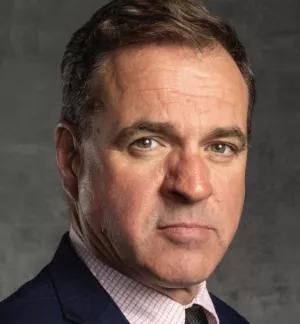
The president has declared war on the press. He cannot forgive the media for saying that the crowd at his inaugural was small. He is even picking fights with a TV comedy show. His press secretary is a laughing stock. Worse, the president is trying to pick and choose between news outlets, excluding some from briefings. And he has become convinced that people within his administration are leaking information to his media opponents.
These are among the many, many things that journalists like to say are “unprecedented” about the administration of President Donald Trump. But all the things I have just written could equally well have been written in 1969 about the administration of President Richard Nixon.
The Washington Post reported on Nixon’s inauguration that his crowd was “far smaller and at times less enthusiastic than the 1.2 million” that had turned out for Lyndon Johnson in 1965. Nixon scrawled in the margins of his news report the next day: “The press is the enemy.” Sound familiar?
Early in his first 100 days, Nixon also picked a fight with a TV comedy show that made fun of him, “The Smothers Brothers Comedy Hour.” And his press secretary, Ron Ziegler, was despised by the Washington press corps. After his first news conference, Nixon sent a memo demanding “on an urgent basis” a list of those in the White House press corps who were against him. In the future, he said, he would call only on his friends and not those “who are definitely out to get us.” It was Nixon’s fury over leaks to the press that led to the wiretapping of National Security Council staff members.
For Smothers Brothers read “Saturday Night Live”; for Ron Ziegler read Sean Spicer. So closely is President Trump following the Nixon script that, for the first time, I begin to fear for his political future. True, with the benefit of hindsight, we tend to think that Nixon was always doomed to self-destruction. In reality, in 1969 the Watergate scandal was still a long way off. The fateful attempt to bug the offices of the Democratic National Committee was on June 17, 1972. Five months later, Nixon achieved one of the biggest landslides in American history.
As Trump’s administration digs itself into ever deeper holes over his campaign’s contacts with the Russians, he needs to remember the lessons of Watergate. Number one: Declaring war on the press is a high-risk strategy because they have the biggest possible incentive to get you. Number two: It’s the cover-up that kills you.
Yet there is one big difference between then and now. Donald Trump has an advantage that Richard Nixon never had — not even after his 1972 triumph: The Republican party has a majority in both houses of Congress.
I spent the earlier part of last week on Capitol Hill. This is what I learned. After five weeks when the headlines were dominated by executive orders, nominations, and tweets emanating from the White House, the action has now shifted. Commentators remarked on the more conciliatory tone of the president’s speech to Congress last week. I was more interested in the content. In essence, it set out the legislative agenda of the House Republican leadership.
Those who warned of a Trump tyranny have been wrong so far. Rather, the president looks more like an unruly constitutional monarch — a king on a fixed-term contract — who loses court battles, picks fights with the press, gives speeches, and leaves the legislating to House Speaker Paul Ryan and his colleagues. In British terms, Ryan is the prime minister, with the Republican majority leader, Kevin McCarthy, as a formidable chief whip.
These men have long impressed me. They are young — Ryan is 47, McCarthy 52. They are indefatigably energetic. And they know what they want to do.
In essence, the House Republicans have a 200-day plan. The program is as follows. First, regulatory reform, including repeal of the Dodd-Frank banking act and deregulation of the energy sector. Second, the repeal of Obamacare and its replacement with a more competitive market-based system. Third, comprehensive tax reform, including lower rates on personal and corporate income tax, a new Border Adjustment Tax (BAT), and abolition of the inheritance tax.
Ryan & Co. see this program of radical reform as theirs. And they see this year as a historic opportunity —“one of those moments that never comes back again”— to take advantage of unified Republican government.
My favorite number in the musical “Hamilton” is “The Room Where It Happens,” which describes the famous compromise reached between Alexander Hamilton and James Madison over dinner in 1790. The federal government took over the states’ debts (as the Treasury secretary from New York wanted) but the national capital was moved to the South (as the congressman from Virginia wanted). The House is now the room where it happens.
As the song says: “No one really knows how the game is played/The art of the trade/How the sausage gets made.” But that’s why so much of American politics takes place in the District of Columbia, formerly a swamp on the Virginia-Maryland border. Donald Trump is not the first president to have spoken of draining that swamp. If, by treading unwarily, he sinks in it, he will not be last to do so.
Ferguson, Niall. “The Hill, the swamp, and precursors to Trump.” The Boston Globe, March 6, 2017


